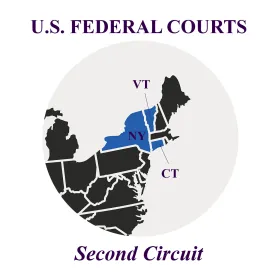In Reyes v. Ic Sys., No. 3:19-cv-01206 (JAM), 2020 U.S. Dist. LEXIS 114206 (D. Conn. June 29, 2020), a federal district court in Connecticut denied Defendant IC System, Inc.’s (“Defendant”) motion to dismiss because Plaintiff Paul Reyes (“Plaintiff”) adequately stated a claim under the Fair Debt Collection Practices Act (“FDCPA”). Previously, the court had dismissed Plaintiff’s “bare-bones” complaint for failing to state a claim, but granted leave to re-plead.
At some point before March 2018, Plaintiff allegedly became delinquent on a $254 cable bill. In March of the same year, a company by the name of Receivables Performance Management (“RPM”) listed a $254 credit entry on Plaintiff’s credit report under the account number 5858****. In February 2019, Defendant placed its own entry on Plaintiff’s credit report for the same $254 debt although it used a different account number, 9598****. Defendant did not clarify that its entry represented an attempt to collect the same debt previously under collection by RPM. As a result, at least one credit-reporting agency reported Plaintiff as having two entirely different debts. This inaccuracy lowered Plaintiff’s credit score, causing it to fall below what it might have been had Defendant reported its entry as a second collection attempt and not as a “tradeline on an ostensibly new delinquent debt.”
Plaintiff’s original complaint was dismissed, in large part, because Plaintiff did not allege, “whether it was [Defendant] or the other debt collector who first reported the debt to the credit reporting agency,” which was a “fatal” error. Plaintiff’s amended complaint addressed this deficiency by alleging Defendant was the second reporter and that it did nothing to clarify that it was trying to collect the same debt as the original collector. Plaintiff further bolstered his complaint by claiming Defendant was deceptive, citing six subsections of the FDCPA that Defendant allegedly violated by its misleadingly duplicative reporting (notably, Plaintiff’s complaint only contains one count: violation of the FDCPA).
In assessing the strength of Plaintiff’s amended complaint, the court analyzed FDCPA misrepresentation claims per 15 U.S.C. § 1692e (i.e., “a debt collector may not use false, deceptive, or misleading representation or means in connection with the collection of any debt”). The court’s evaluation of whether a statement made by a debt collector is misleading or deceptive hinged on the “least sophisticated consumer” test from Avila v. Riexinger & Assocs., LLC, 817 F.3d 72, 75 (2d Cir. 2016). Avila holds that if the statement is “open to more than one reasonable interpretation, at least one of which is accurate,” the statement violates the FDCPA. As a result, reporting of a debt that is already reflected on a credit report is not deceptive so long as the second report does not mislead about whether it is collecting the same debt as the previous reported debt. In turn, the keystone of Plaintiff’s complaint is that Defendant did not tell the credit-reporting agency that it was a second collector for the debt already reported by RPM.
Accordingly, the court noted, “by using a new account number and not providing any comment or other explanation that it was a follow-up debt collector on a pre-existing debt, it lead the credit reporting agency to believe that [Defendant] was opening a tradeline on a new debt with a new account number.” This made it appear as though Plaintiff had twice the overall indebtedness than was true. Thus, the “least sophisticated consumer,” upon reading the credit agencies’ report, would conclude that Plaintiff had two debts when in fact he had one. This, according to the court, for “initial pleading purposes,” satisfies section 1692e(2)(A)’s description of a “false representation of the character … of any debt,” as well as section 1692e(10)’s description of “deceptive means to collect or attempt to collect any debt.”
Defendant’s last-stand argument that “the credit reporting agencies who reported [Plaintiff’s] debts are indispensable parties and that this action must be dismissed under Fed. R. Civ. P. 12(b)(7) for failure of [Plaintiff] to join these … parties,” was found unavailing. In ruling against Defendant, the court drew attention to Defendant’s failure to “point to anything in the pleadings to support its claim,” and Defendant’s failure to offer “any evidence at all for its assertion.” Ultimately, the court denied Defendant’s motion to dismiss and ruled that Plaintiff had “plausibly alleged that [D]efendant … used a false, misleading, or deceptive means to attempt to collect a debt in violation of 15 U.S.C. § 1692e(2)(A) and 15 U.S.C. § 1692e(10).”
While the court found that Plaintiff’s second attempt plausibly alleged a claim under the FDCPA at this stage of the litigation, it remains to be seen whether the claim ultimately survives through trial. Stay tuned.




 />i
/>i
